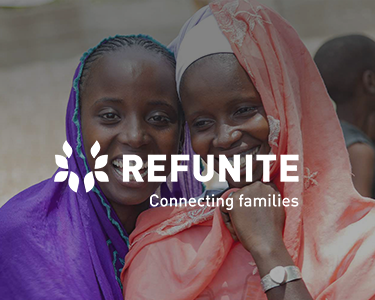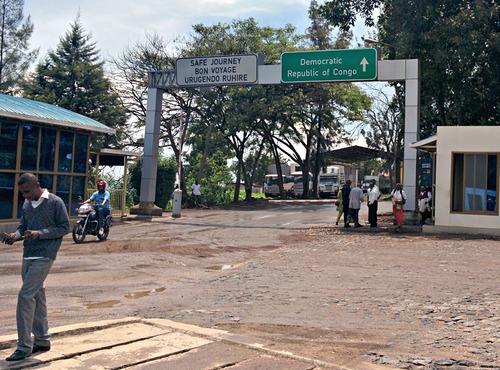
In this blog-post, Nishant Shah, REFUNITE‘s Africa Director, reflects on his recent trip to the Democratic Republic of Congo.
I recently embarked on a trip to Goma in the Democratic Republic of the Congo (DRC) to evaluate whether a rapid expansion of REFUNITE’s family reconnection work is warranted – and if so, how to proceed. At the back of my mind was a book I read a few years ago; “King Leopold’s Ghost” by Adam Hochschild.
The book described King Leopold of Belgium’s 19th century conversion of the DRC from a beautiful, lush, and resource-rich country into a personal fiefdom characterized by ubiquitous violence and exploitation.
During the course of this trip it became abundantly clear that the Ghost of Leopold still lingers. It has coalesced into a fog that has condensed through the decades into ethnic and land-based conflict, rebel groups, violence, corruption, and a myriad other ills befalling the massive heart of Africa. As a result, there are now hundreds of thousands of internally displaced people (IDPs) and refugees.
Yet, “Heart of Darkness” – as the Polish author Joseph Conrad famously labelled the DRC in his book – it most definitely is not. Instead, there is a resilient population with a sense of service to their communities, and countless folks looking for family they have lost in the course of harrowing journeys.
Identifying the pathway to scale
My goal was to begin to understand the extent to which there is a need for REFUNITE’s family reconnection services in North Kivu. This also requires a better feel for the area’s geography, institutions, culture, languages, and economic landscape.
REFUNITE (www.refunite.org) has already worked in various theaters of operation in Africa – including, for example, the refugee camps Kakuma and Dadaab in Kenya, where we have large-scale mobile outreach programs in partnership with the Kenya Red Cross Society.
Nonetheless, any route to scale is context-specific. Experience has taught us that while it is necessary to take into account lessons learned from previous mobile outreach projects, each implementation should be taken as inherently unique. For example, if we were to launch an SMS campaign in Goma, we would need to evaluate it with its own merits or demerits and if REFUNITE is the proverbial hammer, not to see every problem as a nail.
The strategic importance of Eastern DRC to REFUNITE
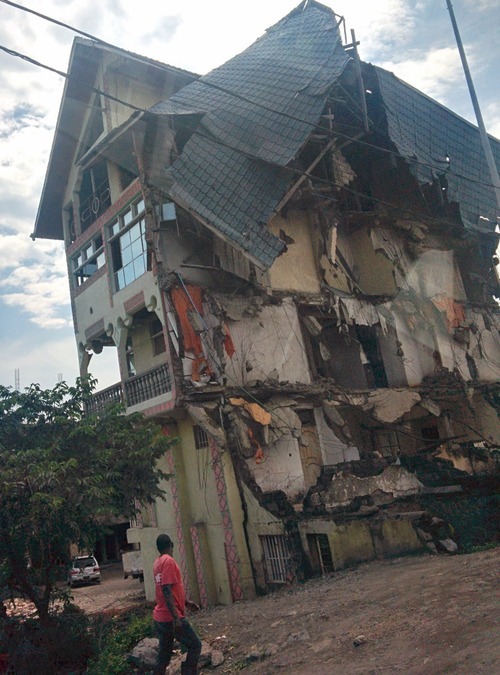
“Getting Goma right” is very important to REFUNITE, as our platform already has more than 22,000 Congolese users registered and looking for lost family members.
According to UNHCR, the United Nations’s refugee agency, there are almost three million IDPs in the DRC and 450,000 refugees living in neighboring countries such as Burundi, Rwanda, Tanzania, and Uganda. Therein lies a huge potential for the REFUNITE platform to assist those who are searching for loved ones.
What we now need to do more comprehensively is target the areas where displaced persons are both coming from and moving to, maximizing the number of potential reconnections.
The assessment project in Goma will help REFUNITE come up with tailored mobile outreach programme, which aims to reconnect families living in the major IDP camps.
Onwards to DRC
With all this in mind, I began the trip with a stop-over in Kigali – the calm, green capital of Rwanda – where the 1994 genocide seems an eon apart. I took the opportunity to visit the Genocide Memorial Centre, which serves as a constant reminder of a scarring chapter in the country’s history.
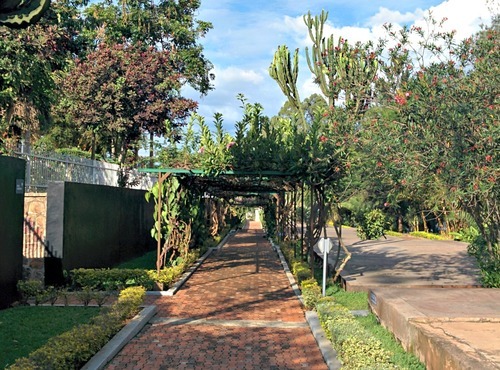
The museum gave me a sense of the horror that took over Rwanda in 1994. One photograph showed a large group of children huddled around a bulletin board seemingly hopeful that they will find a picture of their family and reconnect with them. This was a resounding moment for me, as it reiterated the importance of REFUNITE’s work and the need to continue making the process of finding family easier, faster, and ubiquitous.
During the road trip from Kigali to the Gisenyi border-crossing prior to entering Goma, I learned that many IDP camps actually started out as refugee camps for Rwandans fleeing in 1994. A large percentage of today’s refugees in eastern DRC are still Rwandans, followed by Ugandans and a smaller number of Burundians.
Thinking about the sheer complexity of the struggles here is a taxing endeavor: refugee crises that became IDP crises and then back again, with tents that once alternatively housed Tutsis, Hutus, and many other groups as conflicts spawned, metamorphosed, and twisted into different beasts entirely. It was a sobering reflection and the backdrop for the days to come.
The generous facilitator
Any undertaking like this needs a facilitator and in this case we were fortunate to have Vodacom DRC, a mobile network operator. Since 2013, Vodacom DRC and Ericsson have provided REFUNITE with a free help line for families in DRC and SMS outreach to their customer base.
We have run numerous campaigns in the country to register folks looking for missing loved ones onto our platform, both via SMS and radio. Vodacom DRC also runs a project called “Red Alert”, which seeks to address the IDP crisis by spreading the word about REFUNITE, providing free calls to camp residents, as well as spearheading various initiatives in education and provision of materials for temporary shelter.
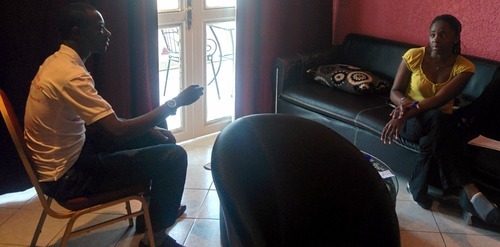
I was lucky to have the guidance of Bonheur Kasali who leads the Red Alert campaign in Goma. He is a passionate, tactful, and well-connected advocate for Congolese IDPs – making him and his team the perfect people to help REFUNITE better understand the situation on the ground.
Setting the stage
During one evening in Goma, I sat with Bonheur and our wonderful translator Gloria, who is also a PhD student doing her thesis on IDP self-sufficiency and resilience. Over the course of a few hours, the two of them patiently addressed my questions, dispelling many assumptions I had about the region.
They further explained the history of the IDP crisis and its potential impact on the project; how camps are currently managed; the political aspects to take into account; and other essential contexts.
Having gained some insight into the situation, I was ready to visit the camps to interview families, community leaders, and relevant humanitarian officials.
The camps
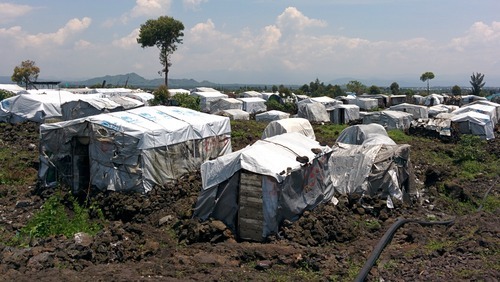
Over the next few days, I visited four camps, including the three largest ones: Mugunga I, Mugunga III, and Bolengo. The camp leaders (elected from the IDPs) were forthright and described in detail what it would take for REFUNITE’s project to succeed in reconnecting their community members with lost family.
One particular area of concern was how families characterized by low technological understanding and a high degree of illiteracy can make effective use of a mobile technology-based initiative. Fortunately, this is something we have extensive experience in and can address.
I was also fortunate enough to meet with community organizations looking to increase self-sufficiency in the camps. One example was a woman’s group organized by ActionAid that makes soap and products from palm oil.
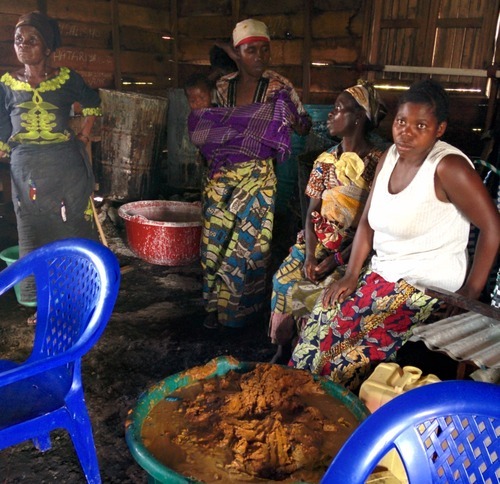
This group faces a stigma that women who have been raped come across when trying to sell goods; has difficulty locating buyers despite demand and high quality products; and has issues being paid on time so that there is ready capital to restock inventory when necessary.
While speaking with some of these groups was not directly related to my core purpose at the camps, they provided tremendously useful inputs for a prototyping project that REFUNITE is currently running. This project looks at what our information platform can do for displaced persons beyond family tracing.
Overall, I was convinced both of the need around family reconnection in the Goma area and of REFUNITE’s ability to scale in the region. We are now in the midst of converting the trip’s inputs into a viable and efficient approach to tracing operations with our partners in DRC.
To the future
I’d be remiss if I ended without mentioning North Kivu’s spectacular and verdant landscape – alive with beautiful lakes, rolling hills, old stone walls, an active volcano, and fascinating wildlife.
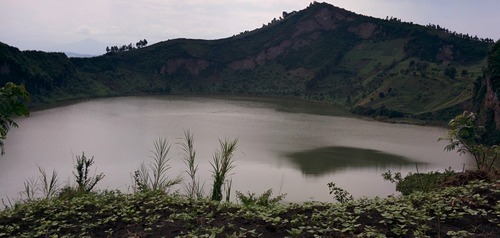
Of course, like everyone, my hope is that one day peace comes to Eastern DRC. The latent economic, cultural, and tourism potential of the region can then be manifest, benefiting families that sorely deserve it and opening up this stunningly beautiful region for all travellers to experience.
Until that happens, REFUNITE will play its part in helping the Eastern Congolese reconnect with those that give their journeys true meaning.
Connect with Nishant and share your ideas: ns@refunite.org
MEDIA CONTACT
Ida Jeng, Director of Global Communications and Strategy. ij@refunite.org


